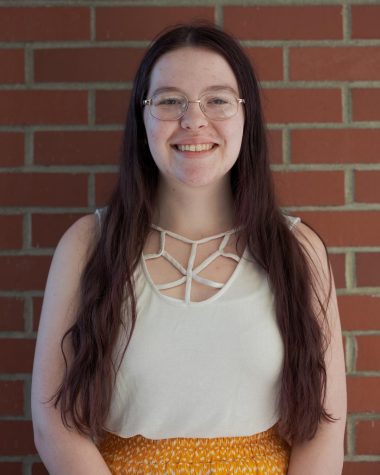The first debate as viewed by SPU students
Many students prepare for upcoming election with debate
October 7, 2020

President Donald Trump and former Vice President Joe Biden met in Cleveland, Ohio on Tuesday, September 29 to tackle the first debate preceding the 2020 presidential election.
During the debate, moderator Chris Wallace gave each candidate two minutes to articulate their plans to address certain issues in the United States, should they be voted president-elect.
New York Times journalist, Shane Goldmacher described the debate as, “90 minutes of chaos in a year of upheaval.”
Reactions to the debate carried a mostly universal theme of shock, but political priorities among the students at Seattle Pacific University varied.
In a random poll of 100 students outside Gwinn, in Tiffany Loop and on social media, 77% of students said they watched the debate.
First-year Irie Aburto was among the 23% that reported not watching the debate.
“I already know who I’m voting for, so entertaining a debate seemed a little pointless when it was bound to be a disaster anyway,” said Aburto.
On the other hand, second-year Sophie Sandahl tuned in to watch the debate to stay informed as a first-time voter.
“I think it’s important to watch the debates to have an idea of what [the candidates’] perspectives are on certain issues,” Sandahl said.
The candidates argued their opposing plans to repeal or replace Obamacare amid the COVID-19 pandemic, as well as their views on the virus itself alongside other topics not relating to healthcare such as Amy Coney Barrett’s supreme court nomination, the Black Lives Matter protests, Trump’s tax reports and climate change.
First-year Rebecca Benedict also watched the debate. As another first-time voter, she expressed that she wanted to actively participate in the democratic process as part of her civic duties.
“I wanted to see how Biden would hold up, and how he responded to the questions because he wasn’t my first choice, but I do plan on voting for him in November,” said Benedict.
The 90-minute segment covered many topics, including who will succeed Justice Ruth Bader Ginsburg, the future of healthcare, COVID-19, the economy, tax reports, racism in America, protests, climate change, and the integrity of the election.
“It was a lot different from what I expected,” said Sandahl, “It was a lot of talking over one another. I got bits and pieces of what their views were, and then afterward I had a bit of an idea of who I was going to continue to follow throughout the election.”
Aburto wasn’t surprised to hear how the debate panned out and said she was happy with her decision to watch The Vampire Diaries instead of watching Donald Trump and Joe Biden argue for an hour and a half.
President Trump strayed off-topic after almost every question, and the candidates talked over each other and moderator Wallace in almost every segment.
“After I saw how they were acting, I was not only embarrassed to live here, but scared for what could happen to the country if Trump wins again,” Benedict said.
For some students like Sandahl, the debate confirmed how important this upcoming election is.
“It’s even more crucial now for people to vote because you can see so starkly how black and white these people’s views are on certain things, and they’re polar opposites,” said Sandahl. “It really cemented the need to vote, and it cemented my views on which presidential candidate I’m going to watch in the upcoming debates.”
The 2020 election will be the first presidential election that many SPU students like Aburto, Benedict, and Sandahl will be eligible to vote in.
“As a young person whose rights and future are on the line, it’s extremely unsettling to see our leaders not taking it seriously,” said Benedict.
Throughout the debate, both candidates made comments about their opponent’s intelligence (or lack thereof) and at one point, Trump weaponized Hunter Biden’s history of drug abuse.
Many felt the level of unprofessionalism displayed at the debate left room for uncertainty on the candidates’ stance on some of the topics addressed.
New York Times journalist Jeremy W. Peters wrote, “there were no winners. America lost.”
With three debates left before the election, students who missed the first one will have the rest of October to tune in, should they choose, before casting their votes.
“I honestly can’t believe the place the world is in,” Benedict said. “I feel like every aspect of our lives has been changed or thrown away this year, and it would’ve been nice to have one important thing go normally.”


























































































